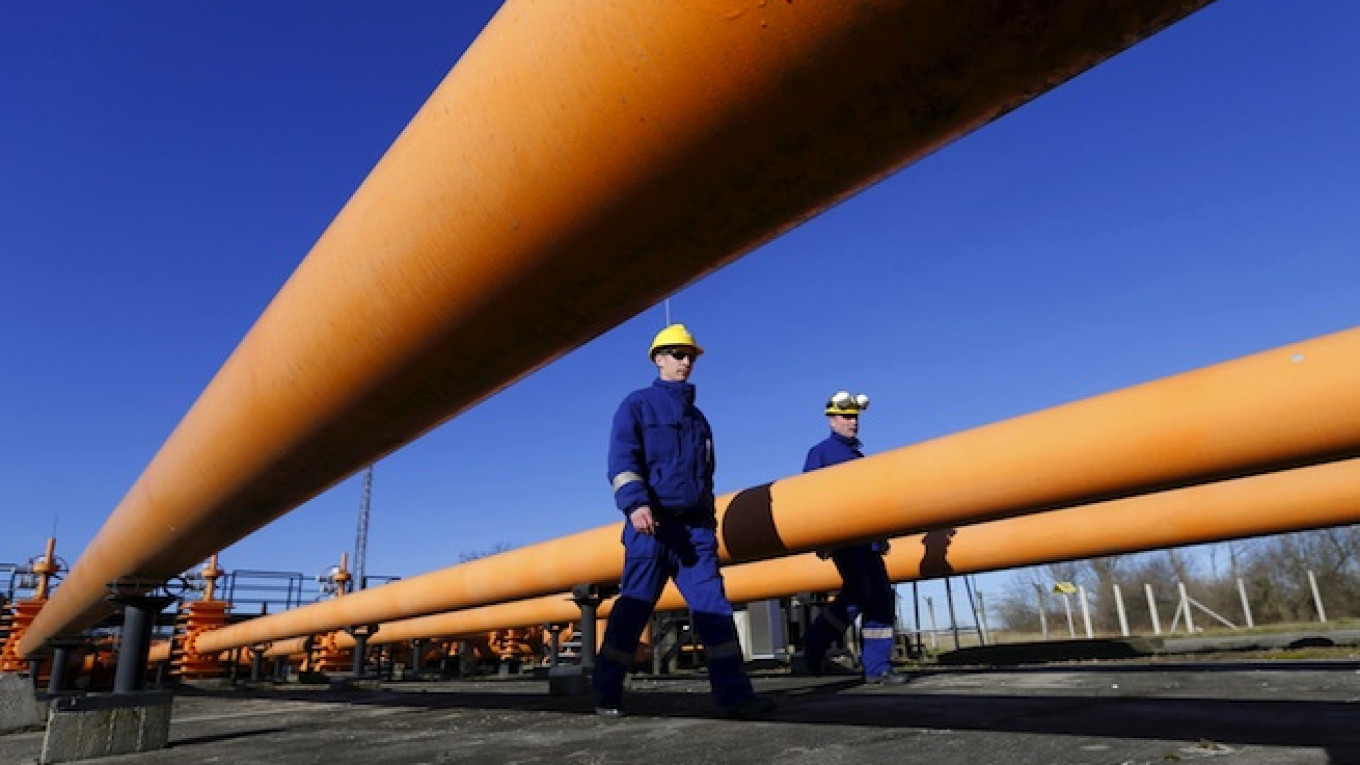RIGA — EU officials are holding talks with a range of non-Russian suppliers and one day could buy gas from Iran, Europe's climate and energy chief has said, setting aside a Gazprom warning that Europe should not block its gas strategy.
Russia's Gazprom on Monday said blocking its Turkish Stream pipeline to bypass Ukraine would be "a serious mistake."
Asked about the project, Miguel Arias Canete, climate and energy commissioner, said Tuesday that Russia, which supplies about 30 percent of EU gas, would remain a big supplier.
But he said the European Union was working intensively on reinforcing its security of supply through a route it names the Southern Corridor and through new suppliers.
"For us the priority is the Southern Corridor. We will apply all efforts for that to be fully operational," Arias Canete said in an interview with Reuters on the sidelines of a meeting of EU energy and environment ministers in Riga.
"It connects to Azeri gas and in the future Iran, if the agreement is finally in place."
Iran and the United States, Britain, France, Russia, China, and Germany reached a preliminary deal on Iran's disputed nuclear program this month and are aiming to reach a final accord by the end of June.
While the European Union seeks diverse sources and supply routes, Russia has said it plans from 2019 to stop exporting gas via Ukraine, currently the main transit route for Russian gas to the EU.
Last year, Gazprom abandoned its South Stream project, also to bypass Ukraine, citing EU regulatory problems.
Now it says it will instead develop Turkish Stream, a pipeline to Turkey and further on to Greece via the Black Sea.
"Russia has said it won't deliver to the Ukraine border. … They are asking us to make big new infrastructure developments. We are not doing that," Arias Canete said.
"Where we are going is to establish gas infrastructure in southeastern Europe with reverse flow interconnectors, building the interconnector from Bulgaria-Greece, Bulgaria-Serbia and so on."
In addition, over the coming weeks and months, the European Commission plans talks with supplier nations such as Algeria, Canada and the United States, as well as with Turkey, he said.
The EU will at the same time hone its strategy on liquefied natural gas (LNG) and is banking on gas trading hubs and the impact of cheaper oil to bring down the price, Arias Canete said.
Before the end of the year he said the Commission aimed to publish an LNG strategy.
A Message from The Moscow Times:
Dear readers,
We are facing unprecedented challenges. Russia's Prosecutor General's Office has designated The Moscow Times as an "undesirable" organization, criminalizing our work and putting our staff at risk of prosecution. This follows our earlier unjust labeling as a "foreign agent."
These actions are direct attempts to silence independent journalism in Russia. The authorities claim our work "discredits the decisions of the Russian leadership." We see things differently: we strive to provide accurate, unbiased reporting on Russia.
We, the journalists of The Moscow Times, refuse to be silenced. But to continue our work, we need your help.
Your support, no matter how small, makes a world of difference. If you can, please support us monthly starting from just $2. It's quick to set up, and every contribution makes a significant impact.
By supporting The Moscow Times, you're defending open, independent journalism in the face of repression. Thank you for standing with us.
Remind me later.


